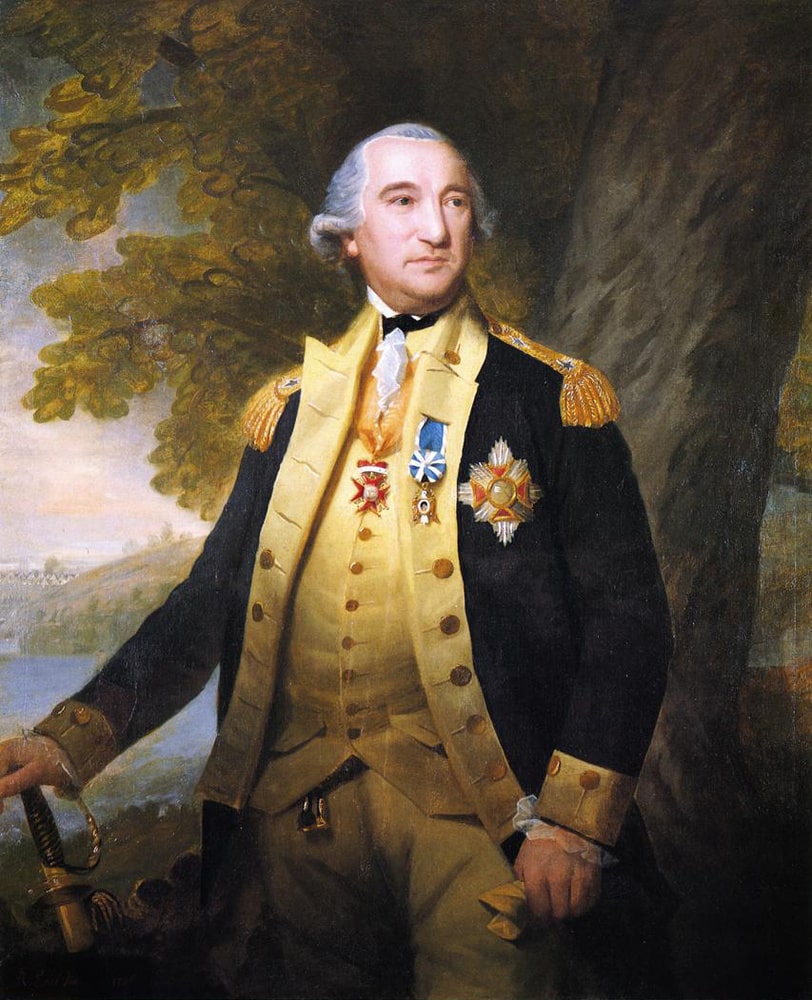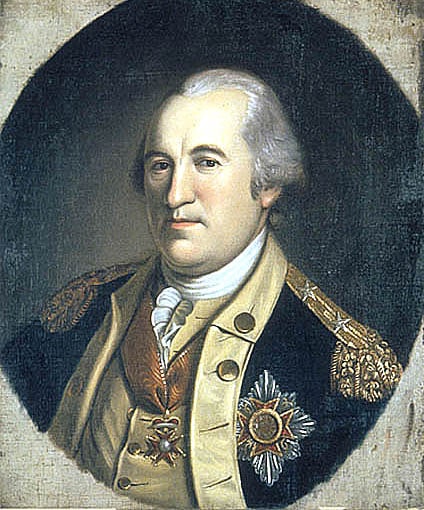Contents

Contents
Quick facts
- Born: 17 September 1730 in Magdeburg, Duchy of Magdeburg (now part of Germany).
- Baron Friedrich Wilhelm von Steuben was a Prussian military officer who significantly contributed to the American Revolutionary War by training the Continental Army.
- He is best known for his role in training American troops at Valley Forge during the winter of 1777-1778, greatly improving their discipline and effectiveness.
- Von Steuben wrote the “Regulations for the Order and Discipline of the Troops of the United States,” a drill manual that served as the standard United States drill manual until the War of 1812.
- He played a pivotal role in the victory at the Battle of Yorktown, which was the last major battle of the war.
- After the war, von Steuben became an American citizen and settled in New York, where he was granted a large tract of land in appreciation for his service.
- Died: 28 November 1794 in Remsen, New York.
- Buried at his home in Remsen; the Steuben Memorial State Historic Site.
Biography

Friedrich Wilhelm August Heinrich Ferdinand von Steuben, German-born soldier, was born at Magdeburg, Prussia, in 1730, the son of William Augustine Steuben (1699 – 1783), also a soldier. At fourteen he served as a volunteer in a campaign of the Austrian Succession War. He became a lieutenant in 1753, fought in the Seven Years’ War, was made Adjutant General of the free corps in 1754; but he re-entered the regular army in 1761, and became an aide to Frederick the Great in 1762.
Leaving the army after the war, he was made Canon of the Cathedral of Havelberg, and subsequently was Grand Marshal to the prince of Hohenzollern-Hechingen. In 1777 his friend, the Count St. Germain, then the French minister of war, persuaded him to go to the assistance of the American colonists, who needed discipline and instruction in military tactics.
Carrying a letter from Benjamin Franklin introducing him to George Washington, Steuben arrived at Portsmouth, New Hampshire, on 1 December 1777 and offered his services to Congress as a volunteer in the Continental Army. In March 1778 he began drilling the irregularly experienced soldiers at Valley Forge. By May, when he was made Inspector General, with the rank of Major General, he had established a thorough system of discipline and economy by first training a model company of soldiers who then trained others.
Results of Steuben’s efforts were shown in the next campaign, the Battle of Monmouth (28-Jun-1778), where he rallied the disordered and retreating troops of General Charles Lee.
During the winter of 1778 – 79, General von Steuben wrote his Blue Book,
published as Regulations for the Order and Discipline of the Troops of the United States. As he completed drafts, Washington went through them line by line, and passed them to Generals Stirling and Arthur St. Clair for comment. They recommended only very minor changes. Published in 1779, the Blue Book served as the American Army’s regulatory bible until the War of 1812.
Steuben was a member of the court-martial which tried and hung Major John André in 1780. After General Horatio Gates’ defeat at Camden he was placed in command of the district of Virginia with special instructions to collect, organize, discipline and expedite the recruits for the Southern army.
In April 1781 he was superseded in command of Virginia by Marquis de Lafayette; in the fall he took part in the Siege of Yorktown.
For his service, the states of New York, Virginia, Pennsylvania, and New Jersey gave Baron von Steuben grants of land. Congress passed a vote of thanks and gave him a gold-hilt sword in 1784 and later granted him a pension of $2400.
Baron von Steuben retired from the army after the war and passed the last years of his life at Steubenville, New York, where he died in 1794.

